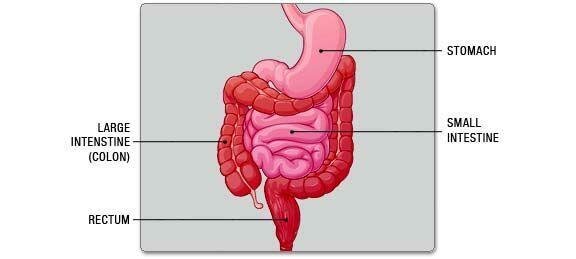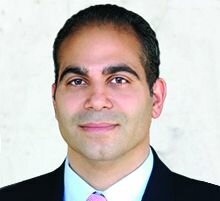Small tears in the lining of the anus, anal fissures affect people of all ages, particularly young and otherwise healthy people. They are equally common in men and women.
Most anal fissures heal with home treatment after a few days. If an anal fissure persists for 6 weeks or more, medicinal or surgical treatment may be required. Our highly trained colorectal surgeons treat numerous patients suffering from fissures and their symptoms. When you call La Peer’s Fissure & Fistula Center of Excellence, you can trust us to diagnose and treat your condition with the goal of alleviating your pain and discomfort.
Causes and Symptoms
 Anal fissures are caused by injury (trauma) to the anal canal, and are often informally known as a “butt cut.” Injury can happen:
Anal fissures are caused by injury (trauma) to the anal canal, and are often informally known as a “butt cut.” Injury can happen:
- If you pass a large stool that stretches the anal canal.
- If you are constipated and try to pass a hard stool.
- If you have repeated diarrhea.
- During childbirth.
- As a result of other medical conditions such as: Crohn’s disease, inflammatory bowel disease, and fissures or fistulas near the anus.
- Due to digital insertion (during an examination), foreign body insertion, or anal intercourse.
- Less commonly as a result of cancer, HIV, tuberculosis, and syphilis.
You should immediately make an appointment with one of our colorectal doctors if you experience painful bowel movements and/or see blood in your stools or on toilet paper after bowel movements. Other signs and symptoms of an anal fissure include:
- Painful bowel movements (sometimes can be severe).
- Pain after bowel movements for up to several hours.
- Bright red blood on stools or toilet paper.
- Itching or irritation around the anus.
- Visible cracked skin around the anus.
- A small lump or skin tag on the skin near the anal fissure.
Sometimes an anal fissure may be a painless wound that won’t heal and that bleeds intermittently but causes no other symptoms. It is important to call our Los Angeles office if you experience any of these symptoms.
Diagnosing Anal Fissures
In order to diagnose your condition properly, our doctors will document your medical history and conduct a physical examination. This will include an inspection of your anal region. Most fissures occur along the midline.
In the event that the tear is visible, a simple anal fissure diagnosis can be made. When further examination is required, a rectal exam using a gloved finger or an anoscope (a short lighted tube) may be used.
If our doctors suspect an underlying condition, such as Crohn’s disease, further diagnostic testing may be required. A flexible sigmoidoscopy, colonoscopy, or pelvic MRI may be recommended.
Request your consultation today.
Call us at 888.512.2312 to schedule an appointment or:
Treatment for Anal Fissures
Often, anal fissures heal on their own within a few weeks, provided patients keep stools soft by treating constipation. Some methods to aid healing include:
- Regular exercise.
- Drinking adequate fluids each day.
- Making sure fiber is a part of your diet.
- Not straining during bowel movements.
If the above treatments do not resolve the anal fissures, nonsurgical treatment options can include:
- Fiber supplements.
- Sitz baths.
- Medicated creams.
- Nitrogylcerin.
- Botox.
- Calcium channel blockers.
If a fissure lasts 6 weeks or longer, it is deemed a chronic condition requiring further medical treatment. For chronic fissures, you might be a candidate for a surgical procedure known as an anal fissurectomy with a possible partial sphincterotomy. This surgery reduces spasm and pain and promotes healing by cutting a small portion of the anal sphincter muscle.
This surgery is done on an outpatient basis at La Peer and allows patients to go home the same day.
Anal Fissure FAQs
Q: What happens if an anal fissure is not treated?
A: A well-established anal fissure will persist until it is definitively treated and healed.
Q: How can I prevent anal fissures in the future?
A: People who are prone to fissures may want to avoid constipation by taking stool softeners or bulk laxatives and drinking plenty of water and other fluids. It is also advised to keep the anal region as clean as possible. This can involve taking frequent warm baths (sitz baths) and using clean moist pads to wipe the anal area clean. Over-the-counter creams and ointments should be avoided unless specifically recommended by your doctor.
Q: Does fissure surgery cause any complications?
A: For about a week, the anal opening may be a little loose; there may be some amount of bleeding also. However, control over defecation remains intact. After 2-3 weeks, the wound completely heals and there is no further trouble.
Q: More specifically, what risks are associated with a sphincterotomy?
A: The most concerning risk with surgery is the development of anal incontinence. The risk of incontinence after sphincterotomy is higher in women who have had previous vaginal childbirth, or in any patients that has had previous anal or rectal surgery. The risk should be discussed with your surgeon.
Q: After surgery, when can I return to work?
A: Most people are able to return to work and other activities in about 1-2 weeks.
Q: Does the wound recur after surgery?
A: The original wound due to fissure is completely cured. However, if the patient continues to experience constipation, another wound can occur.
Talk to a Colorectal Surgeon
If you believe you may be suffering from anal fissures or exhibit any of the above symptoms, contact our team of colorectal specialists at La Peer’s Fissure & Fistula Center of Excellence for a diagnosis and treatment options. You can reach us by phone (888) 512-2312 or our online contact form.
Please read this article on WedMD regarding Anal fissures.
Next, read about lateral internal sphincterotomy.









